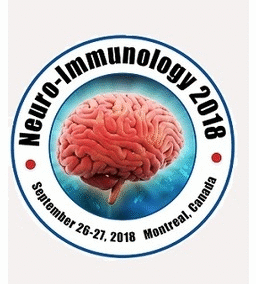Day 1 :
Keynote Forum
Helieh Oz
UK Medical Center, USA
Keynote: Biomarker surrogates for inflammatory and neuropathic complications and pain related hypersensitivity
Time : 9:30AM

Biography:
Dr Helieh Oz has a DVM, MS (U. IL); PhD (U. MN) and clinical translational research certificate (U.KY). Dr Oz is an active member of American Association of Gastroenterology (AGA) and AGA Fellow (AGAF) and associate in Rome Foundation. Dr Oz is Immuno-Microbiologist with expertise in inflammatory/infectious diseases, drugs discovery, pathogenesis, innate/mucosal Immunity, and micronutrient, animal models and pain related behavioural modifications. She has over 90 publications and served as Lead Editor for special issues. Dr Oz serves on different editorial advisory board committees including Center of Excellence for Medical Research and Innovative Products, Walailak University Thailand and is an avid reviewer for several peer-reviewed journals.
Abstract:
Biomarkers are measurable indicators for biological conditions, which extend from normal biological processes, to pathological progress as well as pharmacological response and therapeutical interventions. Biomarker surrogates are required for early diagnosis and treatments of chronic inflammatory and neurological disorders. Appropriate surrogates are required to be sensitive, specific, noninvasive and feasible yet to predict recoveries. Effective biomarkers are often involved in pathophysiological chain. These markers can be classified as simple and nonspecific (e.g. blood pressure, hematogram, BMI), more specific (e.g. enzymes, cytokines, chimokines) or complex and expensive (e.g. FMRI, PET and, CT scans). Pro-inflammatory cytokine, tumor necrosis factor α (TNFα) is released during the early process of inflammatory response following insults. TNFα is a prominent inflammatory biomarker which up-regulates various inflammatory cytokines and chimokines biomarkers, to initiate acute and chronic stages of inflammation and pain related sensation in inflammatory and neurophathic patients and models. TNFα is released by activate macrophages, microglia, neurons, astroglia, CD4+ lymphocytes, and natural killer cells. In a historical clinical trial (1988) subjects were injected with TNFα when shortly after had developed fever, pain and general malaise. As, the initial inflammatory insult primes the immune system, the succeeding insult/s amplify/s deleterious responses for inflammatory and neuropathic disprders. Dysregulation of TNFα contributes to development of inflammatory conditions such as headache, periodontal, temporomandibular and neuropathic pain. Trigeminal neuropathic pain is common following trigeminal nerve damage post surgical procedures and maxillofacial injuries. Analysis of proteomic profiling at multiple time points identify several altered levels of inflammatory cytokines and chimokines. This presentation will explore surrogate markers of inflammatory and neuropathic disorders and their implication in diagnostics as well as possible clinical interventions.
Keynote Forum
Barbara Arrowsmith Young
Arrowsmith Program, Canada
Keynote: A Personal Journey Into the World of the Brain: Shaping the Mind/Function and Plasticity
Time : 10:15AM

Biography:
Barbara Arrowsmith Young holds both a B.A.Sc. in Child Studies from the University of Guelph, and a Master’s degree in School Psychology from the University of Toronto (Ontario Institute for Studies in Education). After her undergraduate studies were completed Barbara worked as the Head Teacher in the lab preschool at the University of Guelph for two years where she began to observe learning differences in preschool children.
Abstract:
In this presentation, Barbara will talk about her journey of discovery, the lines of research she combined and the outcomes achieved over her 35 years as an educator and researcher. She will describe a number of learning disorders, from those that impact the learner in school to those that affect us in life. She will discuss ‘cognitive glitches’ - those areas of weakness that we are all familiar with and often explain away by saying, “I am just not good at navigating, recognizing faces, (fill in the blank).” She will discuss ‘cognitive mismatches’ – situations we find ourselves in where the demand of the task is incompatible with our cognitive functioning and the challenges this presents. Principles of neuroplasticity and the factors leading to both positive and negative brain change will be discussed.

